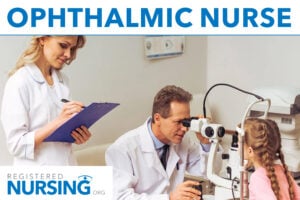Holistic (Complementary) Nurse

What is Holistic/Complementary Nursing?
Holistic/Complementary Nursing refers to a kind of nursing practice that focuses on treating the patient as a whole as opposed to merely treating the symptoms of their present condition. A holistic/complementary nurse is a board-certified RN who takes a mind-body-spirit-emotion approach to the practice of traditional nursing. Holistic/Complementary nurses often employ alternative forms of medicine alongside traditional Western medicine in their practice. This may include dietary advice, therapeutic massage, breathwork, and meditation therapy. Those practicing holistic nursing often will encourage patients to integrate self-care, self-responsibility, spirituality, and reflection into their lives so as to help maintain a proper balance of mind, body, and spirit.
How to Become a Holistic Nurse
What Are the Schooling Requirements for Holistic Nurses?
Like RNs, holistic/complementary nurses must attend college or university to obtain their BSN or ADN. After obtaining a BSN or ADN, nurses are subsequently eligible to sit for their state's NCLEX-RN examination. Holistic/Complementary nurses, like RNs, are required to pass the National Council Licensure Examination (NCLEX-RN) before they are permitted to work. Both a BSN and ADN can lead to entry-level nursing positions; however, the majority of employers will favor candidates who have earned their bachelor's degree. Although it isn't explicitly required to become a holistic/complementary nurse, some RNs who wish to advance in the holistic nursing field will choose to enroll in master's programs with concentrations that focus on holistic nursing. These degrees often will lead to higher-paying positions, such as Holistic Nurse Practitioner.
Are Any Certifications or Credentials Needed?
Upon passing the NCLEX-RN, RNs can apply for RN licensure and certification in holistic nursing through the American Holistic Nurses Certification Corporation. To be eligible for certification, RNs are required to show proof of continuing education in holistic nursing and must complete and pass both a qualitative assessment and quantitative exam to earn certification.
While not required, some holistic/complementary nurses may wish to earn additional certification in alternative or complementary therapeutic treatment techniques, such as acupuncture. These generally require separate training programs that will have their own certification requirements.
Here are a few examples of common holistic nursing certifications:
| Primary Responsibilities | Certification | Certifying Body | |
| Holistic Nurse | Integrating holistic principles into patient care, focusing on mind-body-spirit balance | Holistic Nurse, Board Certified (HN-BC) | American Holistic Nurses Credentialing Corporation (AHNCC) |
| Advanced Holistic Nurse | Providing advanced holistic care, integrating alternative therapies, leadership in holistic practices | Advanced Holistic Nurse, Board Certified (AHN-BC) | AHNCC |
| Nurse Coach | Guiding patients towards health and wellness goals using coaching techniques | Nurse Coach, Board Certified (NC-BC) | AHNCC |
| Advanced Practice Holistic Nurse | Practicing holistic nursing at an advanced level, possibly including prescriptive authority | Advanced Practice Holistic Nurse, Board Certified (APHN-BC) | AHNCC |
| Integrative Nurse Coach | Combining nursing with health coaching, focusing on integrative health practices | Integrative Nurse Coach, Board Certified (INCC) | International Nurse Coach Association (INCA) |
What Does a Holistic Nurse Do?
Holistic nurses use a combination of Eastern and Western medicine to treat patients and teach their communities about wellness and preventative health care. For a holistic nurse, the health of a human being entails more than just their physical well-being. True wellness in a person will encompass not only physical health, but psychological, emotional, spiritual, and social health. As clinicians, it is the duty of the holistic nurse to provide a high standard of holistic care for their patients to help them maintain full-spectrum health.
Some common techniques and therapies used by holistic nurses include:
- Stress management techniques
- Aromatherapy
- Integration of natural or homeopathic products
- Massage
- Hypnosis, hydrotherapy, and balneotherapy
- Chinese and Eastern healing practices
- Wellness coaching
Note: Some of the therapeutic treatments mentioned above may require that the holistic/complementary nurse complete separate and specific training and certification.
Where Do Holistic Nurses Work?
Since many alternative medical practice methods and techniques are used in this nursing field, holistic/complementary nurses do not always require the same kinds of equipment that traditional nurses utilize. This allows them increased access to work through other venues that traditional registered nurses usually wouldn't be authorized to use. A significant portion of practicing holistic/complementary nurses work in:
- Private practice establishments
- Holistic health centers
- Birthing centers
- Privately out of patients' homes
- Traditional hospital setting
What Are the Roles and Duties of a Holistic Nurse?
- Recognize each patient as a whole: body-mind-spirit
- Practice mindful presence in all interactions with patients and colleagues
- Holistically assess patients, using traditional nursing concepts and therapeutic communication techniques to help identify a range of factors that could be potential contributors to increased stress
Holistic Nurse Salary & Employment
Almost all holistic/complementary nurses are also registered nurses (RN). Subsequently, they will have salaries similar to that of traditional RNs. Thus, depending on their location, holistic/complementary nurses will earn between $53,410 and $116,230 annually. The median annual salary earned by all RNs in 2023 was $75,330. Other factors like individual experience and size of employer will play a role in determining a holistic/complementary nurse's salary. In the United States, the holistic/complementary nursing profession is expected to have the same growth as traditional registered nurses and is projected to grow 6% by 2033, according to the U.S. Bureau of Labor Statistics. Here’s a full range for context:
| Median Annual Salary | |
| 10th Percentile | $53,410 |
| 25th Percentile | $61,630 |
| Average Salary | $75,330 |
| 75th Percentile | $93,590 |
| Top Earners | $116,230 |
Holistic Nursing FAQs
Holistic nursing care offers several benefits, including a more personalized and comprehensive approach to patient care. Patients often experience improved overall well-being, reduced stress, and enhanced coping mechanisms. By addressing the root causes of health issues and promoting self-care, holistic nurses help patients achieve long-term health goals. Additionally, holistic care can lead to better patient satisfaction and can be particularly beneficial for those with chronic conditions, as it complements traditional medical treatments and supports the body's natural healing processes.
Holistic nurses and traditional nurses have many similarities as well as differences. Both types of nurses are formally trained and licensed in standards of care and nursing practice. Both can perform bedside care and tasks within their appropriate scope. Passing medications, wound care, assessments, developing a care plan, and evaluating treatment responses are tasks that both traditional and holistic nurses can perform.
However, holistic nurses are typically board-certified in holistic medicine. They bring elements of the mind-body-spirit approach to traditional bedside nursing. They view the patient as a whole, meaning that all elements contribute to the overall health and well-being of a patient. For example, patients with chronic pain may be treated with traditional approaches such as medications, physical therapy, and exercise. However, a holistic nurse may assess psychosocial status, social support, and employ treatments such as acupuncture, massage, aromatherapy, and herbal medicines.
Nurses are all trained, to some extent, to treat patients holistically. However, formally trained holistic nurses take the concept to the next level. Many traditional nurses are constrained by what their organization’s standards of care dictate, but holistic nurses working in an alternative medicine clinic can expand treatments to include holistic medicine.
Helpful Organizations, Societies, and Agencies
- American Holistic Nurses
- Journal of Holistic Nursing
- Journal of Alternative and Complementary Medicine
- Natural Medicine Journal








